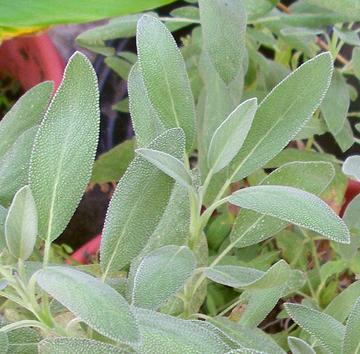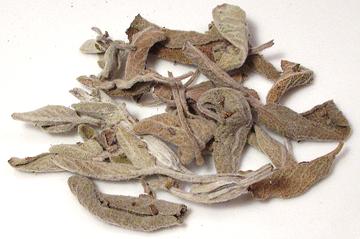
[Salvia Officianalis]
Native to the Mediterranean region, this sage is now planted in gardens and by herb growers worldwide, and it is now naturalized in a number of regions throughout the world. This is the culinary sage sold fresh in North America, while the dried is Greek sage. In cooking it is particularly used with fatty meats and in poultry stuffings. It is one of several sages from which an essential oil is distilled, but not the most important. There are also many decorative cultivars that may have leaves colored purple, white and yellow, as well as white, yellow and green variegated varieties, but they generally don't have as good a flavor profile as the plain green.
More on Sage.
 [Salvia fruticosa]
[Salvia fruticosa]
Native to the eastern Mediterranean, southern Italy, the Canary Islands and North Africa, this sage has been in cultivation since prehistoric times. This species accounts for probably over 90% of the dried sage sold in North America. It is also used for extraction of an essential oil, as well as being burned as incense. Wasp galls an inch in diameter are often found growing on this sage. They are called "sage apples" and are peeled and eaten. The wasp causing the galls was not discovered until 2001. The photo specimen was from Egypt and was quite strong despite its desicated appearance.
More on Sage.
mt_sagez 100614 - www.clovegarden.com
©Andrew Grygus - agryg@clovegaden.com - Photos on this
page not otherwise credited are © cg1 -
Linking to and non-commercial use of this page permitted